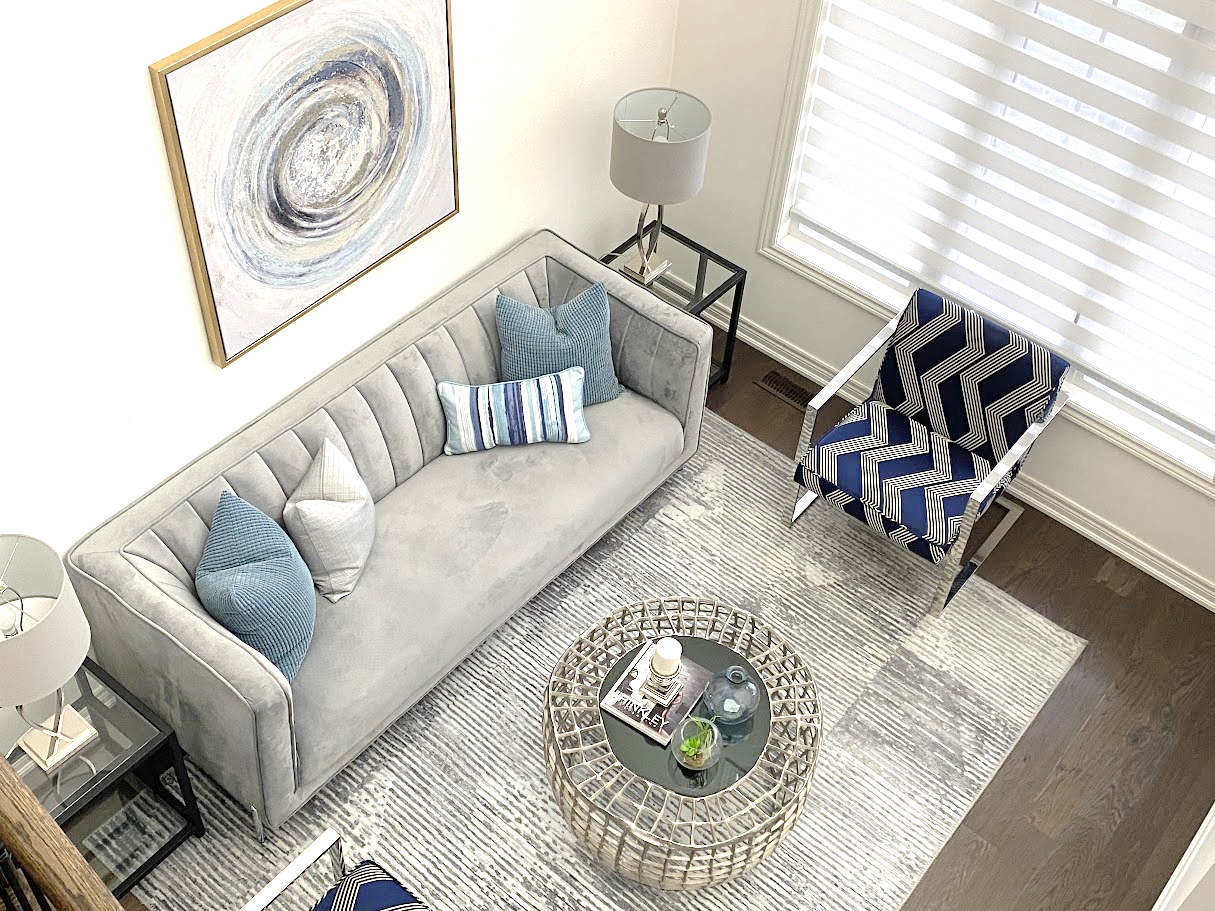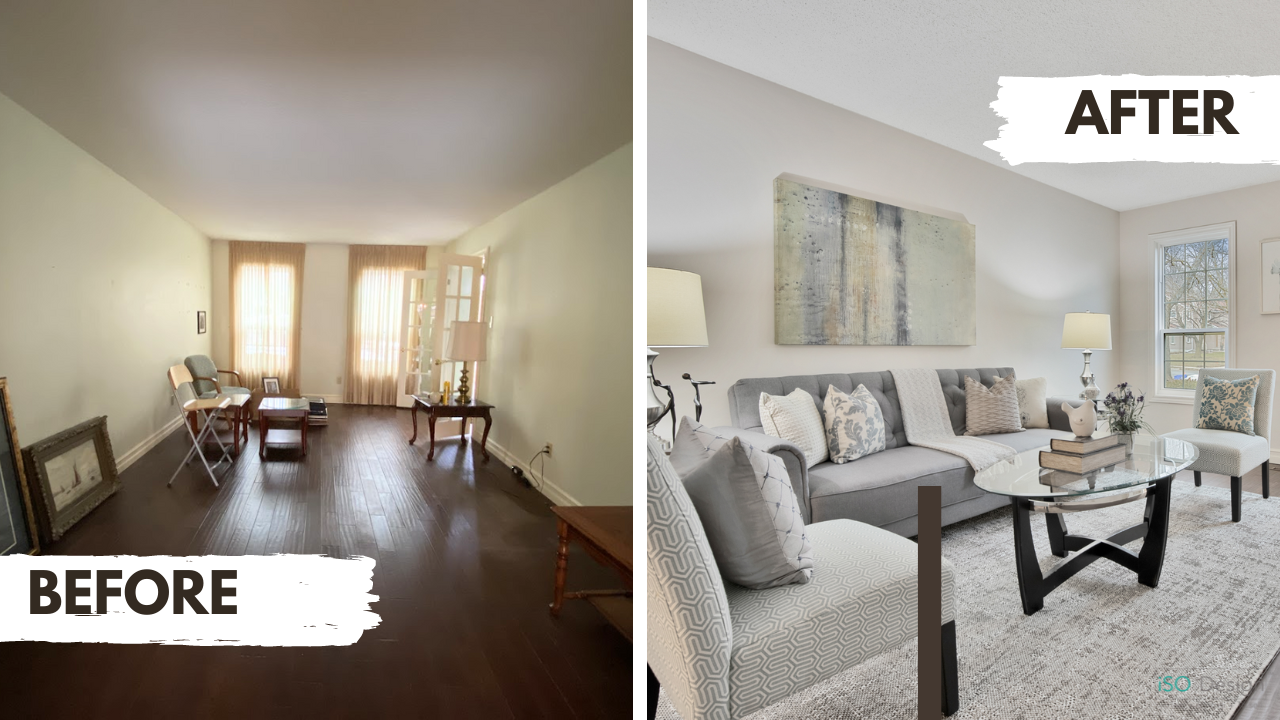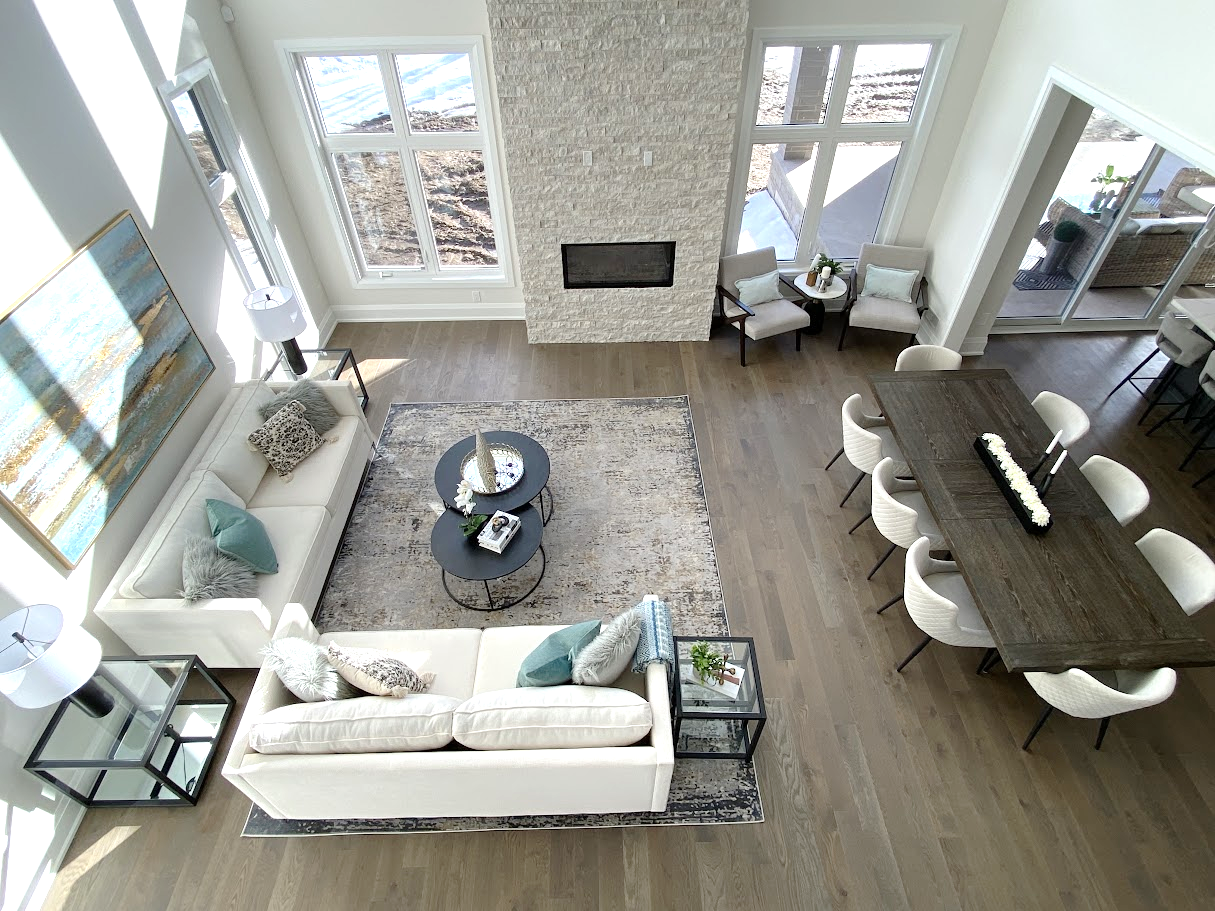Home staging, while recognized as a powerful tool in selling a property, sometimes causes people to raise their eyebrows over the apparent expense.
Let’s demystify the process by breaking down why staging costs what it does, so we can better understand why it’s good value for money.
Here’s why staging is good value for money
1. A professional touch comes at a corresponding price
Home stagers are not just decorators; they’re marketing experts. Their keen understanding of design psychology, current market trends and buyer behaviour ensures your client’s property stands out. Like other professional services, their expertise and time command a professional fee.
2. Quality furniture and decor aren’t cheap
Staging involves selecting or renting furniture and decor that not only fits the space but also appeals to potential buyers. Quality pieces come at a price but also ensure the property looks its best.

3. Offers tailored solutions for your property
Every property is unique, requiring a customized approach. Professional stagers consider the property’s size, layout, target market and local market trends. This personalized attention ensures the staging is optimized for your client’s specific needs.
4. Helps to speed up the sale
Staging often leads to quicker sales and in real estate, time is money. A faster sale can offset the initial staging costs and get you a better return on the property.
5. Uses marketing strategies
Home staging is not just about furniture; it’s about creating an aspirational lifestyle for potential buyers. Stagers employ marketing strategies, using design to evoke emotions and highlight the property’s strengths.
6. Professionalism adds value
A professionally staged home sends a strong signal to potential buyers. It shows that you’ve invested in presenting your property in the best possible light, instilling confidence and potentially justifying a higher asking price.
Case in point
In a recent project, we transformed an older home with minimal updates into a stunning, market-ready residence. Following our advice, the client revamped the space by removing outdated furniture, applying a fresh coat of paint and updating light fixtures.
We strategically introduced staging furniture that emphasized the room’s spaciousness and carefully placed accent pieces to elevate the overall aesthetic. The outcome exceeded expectations. Despite the home’s dated features, it left an incredibly positive first impression, resulting in a sale within just one day.

The impressive part? The home not only sold swiftly but also commanded a price above its asking and estimated value. This success story underscores the transformative power of effective staging, showcasing the potential for outstanding results when approached with expert knowledge and a focus on staging as a powerful marketing tool.
In essence, while staging might seem like an additional expense, it’s an investment that can significantly impact your sale. By understanding the intricate details and value that home staging brings, you’ll see that the costs are often justified and can lead to a more lucrative and timely sale. Remember, it’s not just about selling a property; it’s about selling a dream and a lifestyle.

How listings do without home staging
Not investing in staging can cost homeowners heavily. When a home is not professionally staged, it often languishes on the market, resulting in price reductions and carrying costs. Additionally, unstaged homes might receive lower offers as buyers perceive them as less desirable.
The emotional toll on sellers dealing with prolonged market time and uncertainty can’t be overlooked. Plus, the opportunity cost of not maximizing a property’s potential and losing out on potential buyers who could be swayed by a well-staged presentation is significant. Essentially, refusing to invest in staging can cause financial losses, prolonged stress and missed opportunities in the real estate market.
Over the years, homebuyer purchasing behaviour has evolved and staging has become increasingly crucial.
The shift towards online property searches, the importance of creating strong first impressions, the power of emotional connections, the need for a competitive edge, the emphasis on space and the benefits of neutralizing personal styles all contribute to the changing landscape of homebuyer behaviour, making home staging an essential component in the selling process.

Award-winning Certified UltimateStager, redesigner and owner Nina Doiron is the principal at iSO Design. She provides an objective and experienced eye to attract more buyers and help sell for top dollar. She will also help you declutter and get organized. She says she will “inspire redesign ideas so that you’ll fall in love with your home again.” Call 416-993-0131.














very good article…
Thank you Terry. If you ever have any questions about staging and pre-sale prep, please don’t hesitate send your questions to ninadoiron@isodesign.ca. I’m happy to help.
Staging is like putting on a pretty dress, nices shoes and the earrings too, and help a buyer imagine themselves in this house…and the lifestyle they may aspire to. Good tip Terry.
Hi Annette – you nailed it! Staging is the finishing touch much like the accessories to a great outfit. Just think…you would go see a client in ripped jeans and a dirty shirt would you? Selling a house, typically a homeowner’s largest financial asset, deserves more care and attention to the packaging of it. Thank you for the feedback. If you ever have questions, please send them to me at ninadoiron@isodesign.ca
One thing you did nit mention that happens often when dealing with older and/or ill clients. Selling is already upsetting to them and full of anxiety and many can’t go through the disruption of a staged home. USING the old comfortable things they have in their home BUT just make it look as pleasing to the buyer as possible is key to a happy older client.
YES staging is key but consideration of your clients feelings are paramount. Work within the confines available is important.
Hi Debbie – I couldn’t agree more. There are many different forms of staging. It really is about making the home as pleasing and attractive to as many potential buyers as possible. The first must do step is to declutter. Some elderly clients tend to have far to much stuff in the home, so decluttering is a must first. Showcasing service is not only an affordable staging service, it also is the lease disruptive form of staging as it only uses the homeowner’s existing furnishing and accessories. If you have a client such as this, make sure you ask your stager if they provide this service. Thank you again for the feedback. If you have any questions about staging and pre-sale prep work, please send your questions to ninadoiron@isodesign.ca
Hi Debbie – I couldn’t agree more. There are many different forms of staging. It really is about making the home as pleasing and attractive to as many potential buyers as possible. The first must do step is to declutter. Some elderly clients tend to have far to much stuff in the home, so decluttering is a must first. Showcasing service is not only an affordable staging service, it also is the lease disruptive form of staging as it only uses the homeowner’s existing furnishing and accessories. If you have a client such as this, make sure you ask your stager if they provide this service. Thank you again for the feedback. If you have any questions about staging and pre-sale prep work, please send your questions to ninadoiron@isodesign.ca